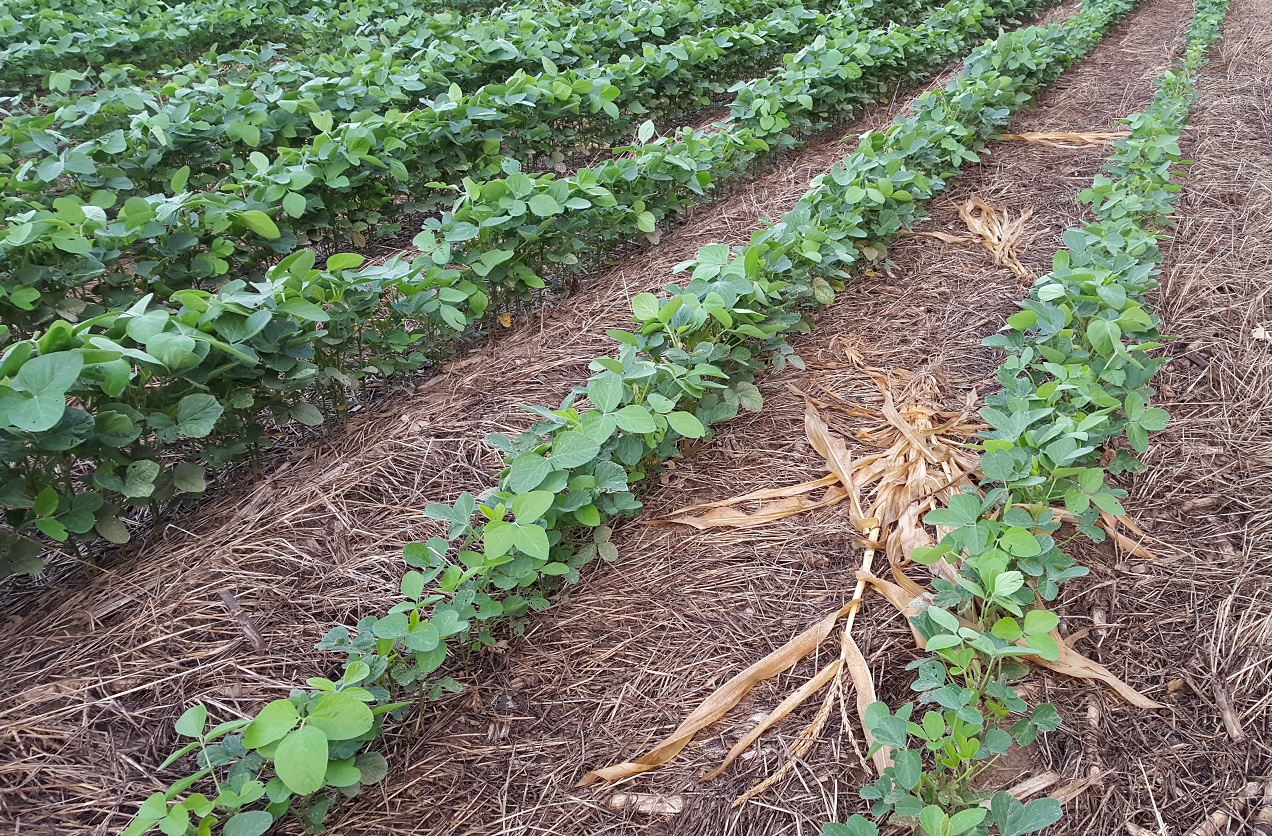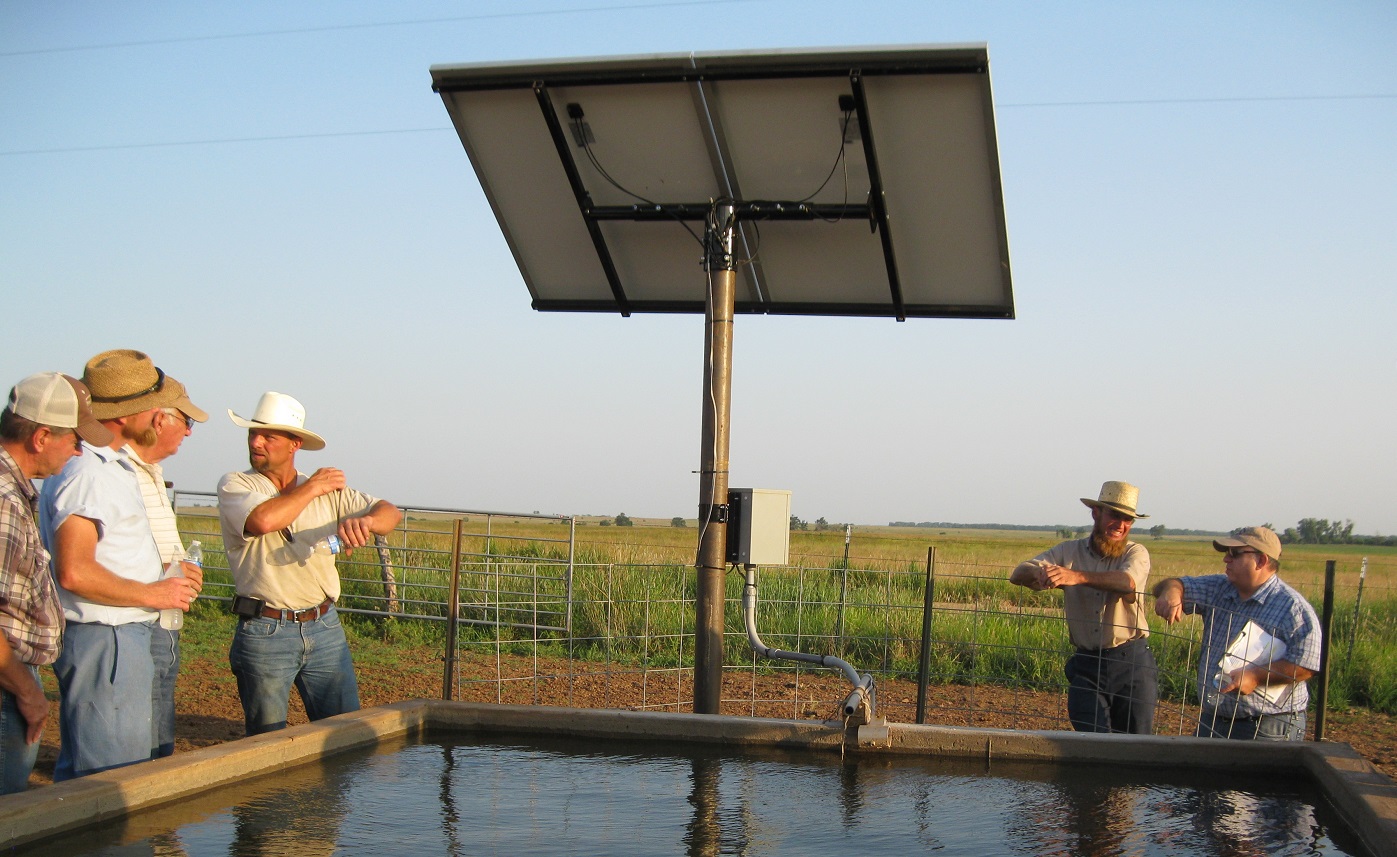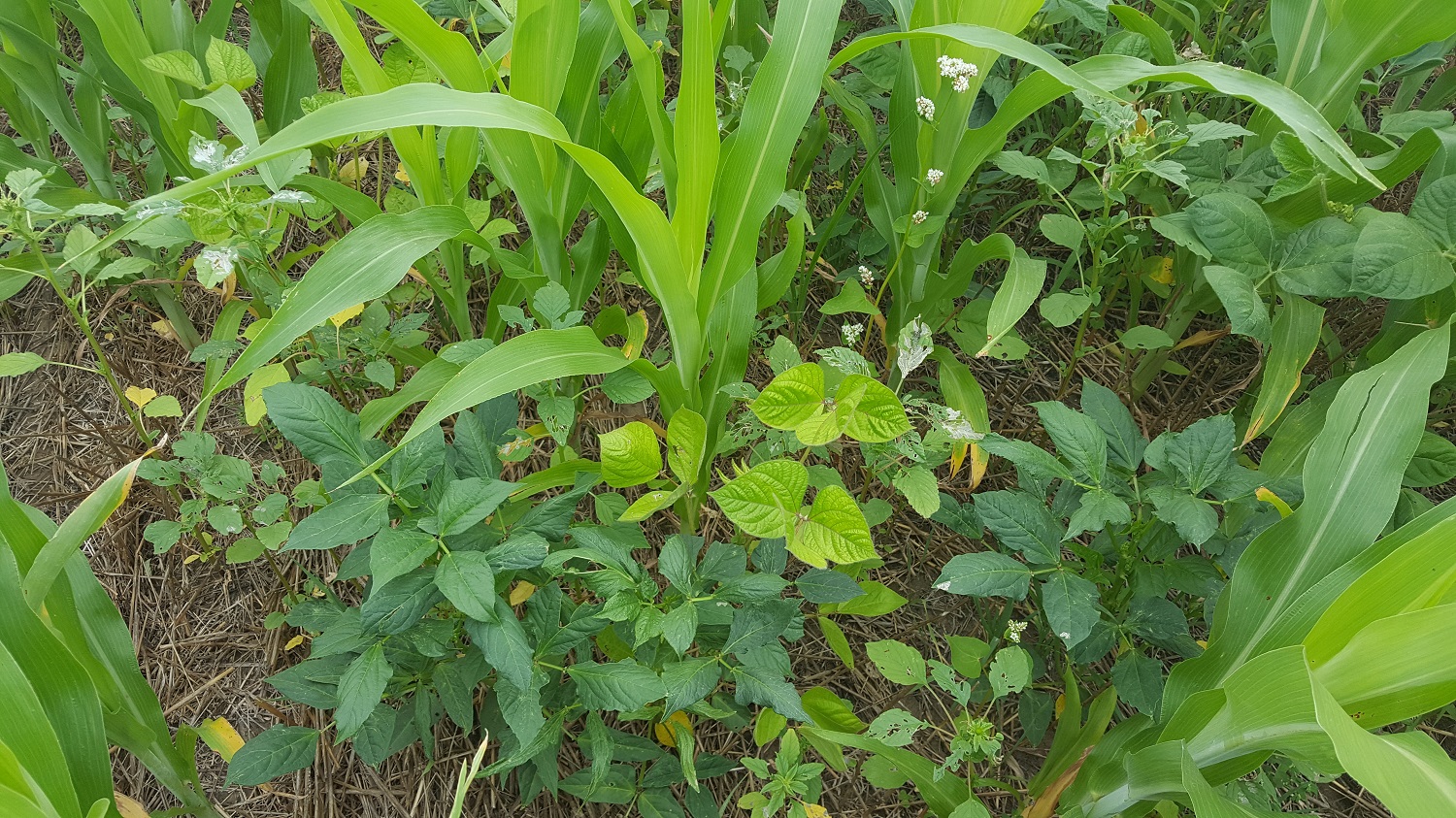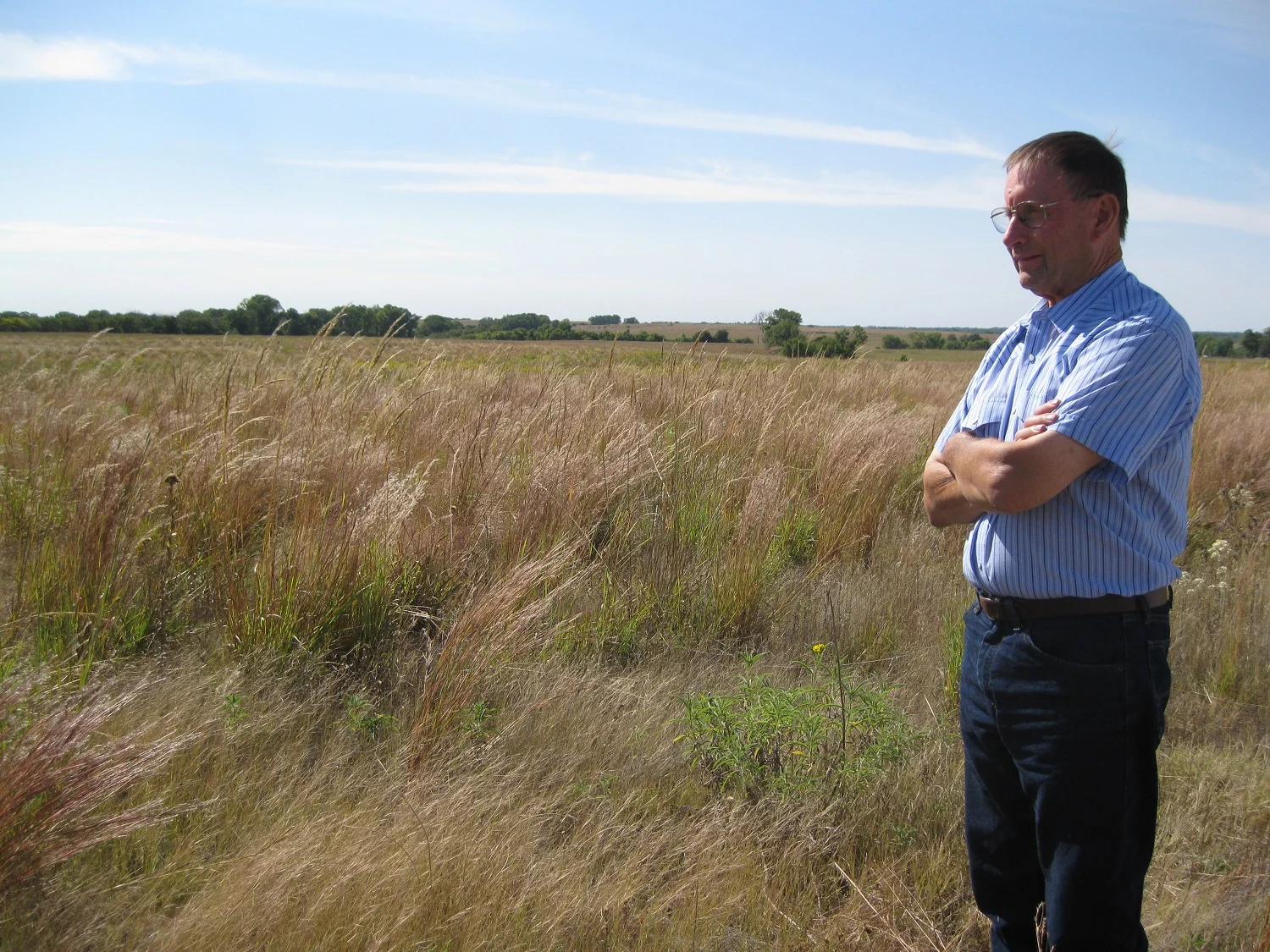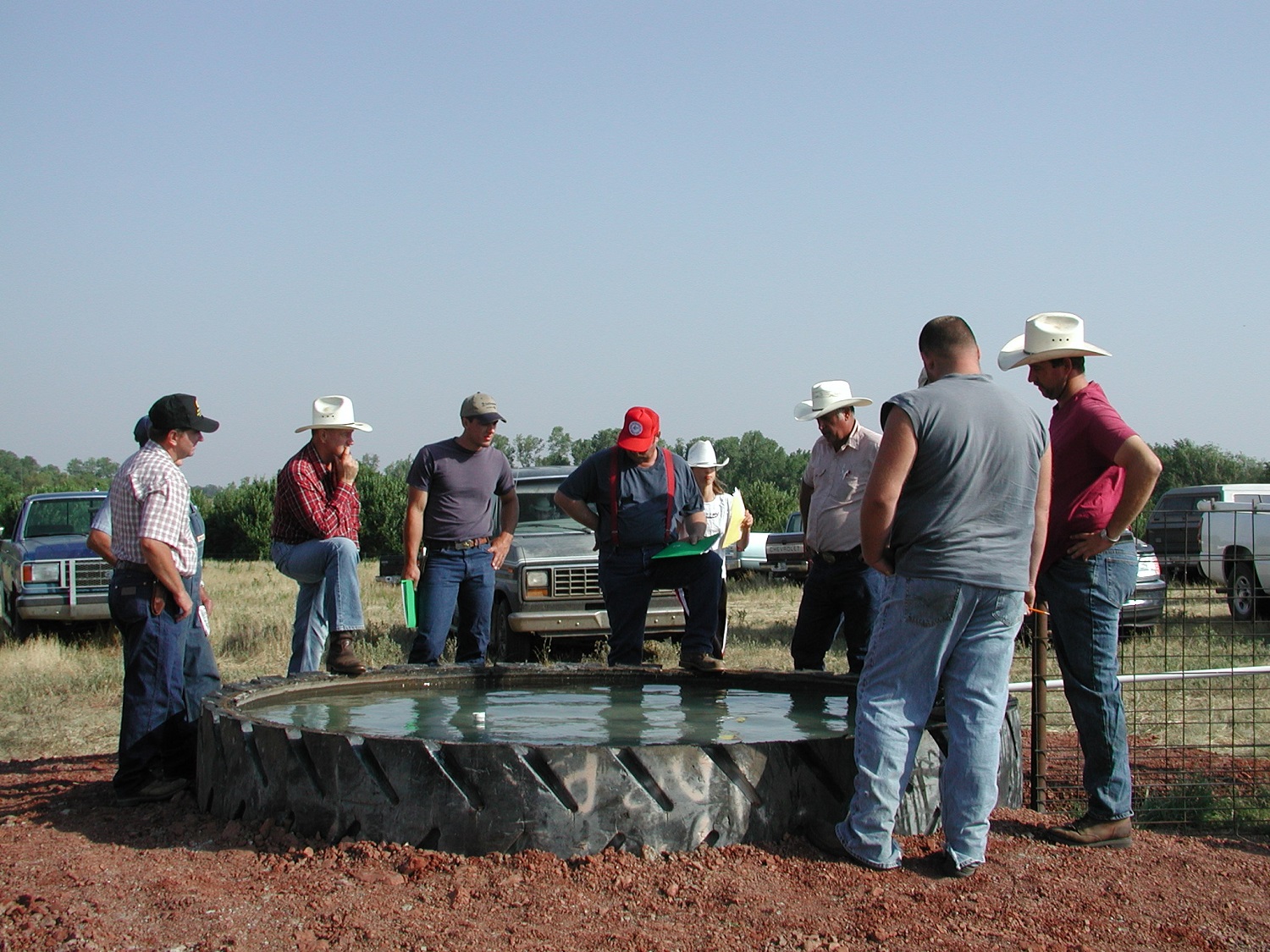Farmers make the difference
The key component in conservation work is the farmer who brings knowledge, experience, and the ability to adapt to change. Farmers make the decisions, do the planning, set the goals - and thus control both the short and long-term productivity of the land and the watershed.
But farmers don't have to do everything on their own. Technical assistance and funding are available through our project office. We help match you up with various state and federal cost share programs including direct financial assistance from the City of Wichita. Contact us with ideas for water quality protection on your farm or ranch.
Practices that protect water quality:
Cover crops
Reduced tillage or no-till farming
Rotational grazing
Crop rotations
Conversion of cropland to permanent vegetation
Wetland development and restoration
Livestock watering systems that replace a stream or river as the primary water source
Moving winter feeding areas away from the stream by providing other sources of water and shelter
Converting expired Conservation Reserve Program (CRP) acres to a grazing system
Options unique to our watershed:
1. Perimeter Fence
The City of Wichita will pay 50% of the cost to install up to 2 miles of perimeter fence on expired Conservation Reserve Program (CRP) contracts within the watershed. Usually we can help you find at least partial funding for a watering system as well. Participants must agree to maintain the grass and fence for at least 10 years.
2. Cropland to Grass
To incentivize converting cropland to a permanent forage such as native grasses the City of Wichita offers a one-time payment up to $100 per acre. In addition, we can help you find cost share programs for seeding the grass as well.
3. Cover Crops
Farmers can get up to $5 per acre for use of the Hagie Interseeder to plant cover crops into standing crops before harvest. Cost shares can be claimed on up to 80 acres of irrigated ground while dryland can claim up to 130 acres.
The Watershed has been chosen to test an innovative new program from the NRCS program known as the EQIP Cheney Lake Watershed Special Initiative. Participants will receive payments on implementing four core practices of regenerative agriculture: No-till, Crop Rotations, Cover Crops, and Grazing Covers, in addition to cost shares for adding water systems on cropland for cattle. We are prepared to assist anyone that signs up for this program as they work toward improving soil and water health. This Program has been put on pause while the NRCS evaluates new potentials for reintegrating livestock onto cropland.

